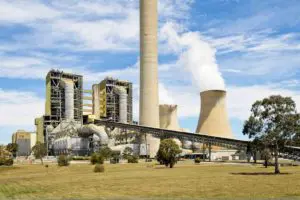Four in five coal plants across the European Union are unprofitable and are risking utilities €6.6 billion ($A10.73 billion) in 2019 alone, according to a new report from financial think tank Carbon Tracker.
The report warns that investors and policymakers should prepare for a complete phase-out of coal by 2030, because without enacting heavy subsidies the coal industry will not survive the sustained competition from low-cost wind and solar power and the temporarily cheap natural gas.
According to Carbon Tracker, EU governments will face “intractable problems” if they seek to support coal through the long-term. Governments would need to choose whether or not to pass costs to the utilities and destroy shareholder value, pass costs to consumers and increase electricity bills, or fund coal companies from debt or taxes.
“EU coal generators are haemorrhaging cash because they cannot compete with ever-cheaper renewables and gas and this will only get worse,” said Matt Gray, head of power & utilities at Carbon Tracker and co-author of the report. “Policymakers and investors should prepare to phase out coal by 2030 at the latest.”
The report – Apocoalypse Now, which uses asset-level financial models to analyse the operating economies of every coal plant in the European Union and the losses they face this year – found that EU hard coal generation has fallen 39% since 2018 and resulted in “eye-wateringly low utilisation rates”.
At the same time, lignite generation is down 20%. Overall, 84% of lignite generation and 76% of hard coal generation is unprofitable and facing 2019 losses of €3.54 billion ($A5.76 billion) and €3.03 billion ($A4.93 billion) respectively.
Across the European Union, 79% of coal plants are running at a loss.
Digging down into country specifics, Germany’s lignite and hard coal plants could lose as much as €9 billion ($A14.64 billion) despite the fact the country’s coal commission has only recommended a 2038 deadline for phasing out coal.
Spain and the Czech Republic have both failed to yet set a phase-out date, and subsequently face losses of €992 million ($A1,613 million) and €899 million ($A1,461 million) respectively. Meanwhile, the UK, which has a phase-out date of 2025, will lose €732 million ($A1,190 million).
Company specific findings from the report show that Germany’s RWE is the utility facing the greatest losses – set to lose as much as €975 million ($a1,585 million), or 6% of its market capitalisation. EPH, a Czech Republic-based utility with assets located mainly in Germany and the Czech Republic, could lose €613 million ($A996 million), and PPC, in Greece, could lose €596 million ($A969 million).
The only EU coal plants to remain profitable will be those in Poland – which already receive relatively high subsidies – efficient units in Germany and the Netherlands, and plants in Italy, the Czech Republic, and Slovenia which benefit from high wholesale power prices.
“Getting off coal is cheap and can be a win-win for consumers and shareholders, providing governments and investors work with local communities,” concluded Gray.
Failing to do so, however, could lead to shareholders taking legal action at the same time as carbon prices will increase costs and utilities will need to start installing expensive technologies to ensure their coal plants meet EU air quality standards starting 2021.







